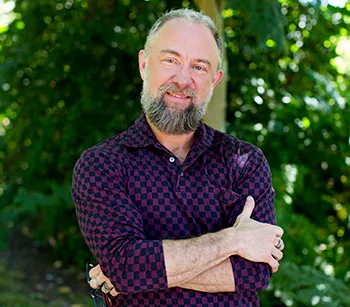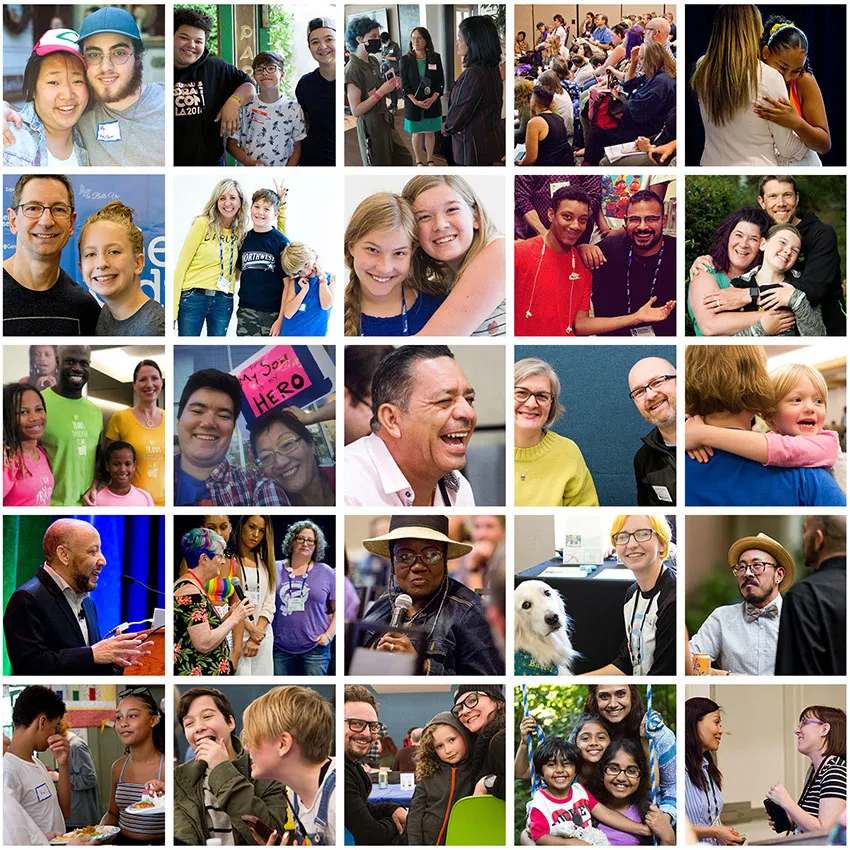Kids exploring their gender identity are faced with many questions from their parents and caregivers: Are they too young to make this decision? Will they change their mind? Is the internet or friends at school influencing them to think this way? According to Aidan Key, these are all legitimate concerns. "They can't really visualize a future for their child," he said.
But parents should support their kids to also ask questions and explore.

So Key founded a nonprofit organization called Trans Families, based in Seattle, which builds community among families of Trans and Nonbinary youth, by offering information on gender-specific scholarships, tools to incorporate gender-affirming curriculums, summer camps, and an assortment of support groups for both parents and children. Seattle's Children Hospital now directs parents to Trans Families, and organizations – including the Seattle Sounders soccer team – host fundraising events.
In the beginning
Key recalled that he had a tough time visualizing his own future as an adult when he transitioned over 20 years prior. Contemplating his time in Seattle's Lesbian scene, while gesturing to his salt-and-pepper beard, he said, "I was scared of losing friends, family, and community. [Parents are also] afraid of losing friends, family, and community. And meanwhile, their kid just wants to be a kid."
When Key organized a conference called Gender Odyssey in the early 2000s, he talked with parents who were fierce advocates for their Trans and Nonbinary teenagers. But he quickly realized that many cis straight parents were navigating their children's issues and making major decisions without any resources to guide them.
So in 2008, Trans Families began, with two families who met with Key in Seattle for a support group session. The group quickly snowballed, with more and more families attending. Key enlisted the help of facilitators to lead multiple groups at the same time, and began conducting video calls.
The online support groups allowed people with similar situations and experiences to join together. Key and his team focused on how to accommodate families in different time zones – even some abroad – and how to maintain the in-person connection that many community spaces required.

Parents as allies
He said different regulations in certain areas of the country can also be challenging. "Washington state has some of the strongest protections compared to many other states for Trans and Nonbinary youth, so how do we support families who do not have those protections or have regressive laws going into place?" In areas where it's unsafe for their kids to be themselves in public, Key said that some parents can only create a gender-inclusive space at home.
A dad-specific group is attended only by dads and a few grandpops. Chuckling, Key was quick to point out the ironic nature of creating a gender-specific group for a gender-inclusive organization but said he believed in the importance of creating a safe space for dads.
"They can open up a little more," he added. "We're all humans, and we have a range of human emotions, and society allows for certain emotional expressions more so for women than for men in certain areas and vice versa. So, the dads group, sometimes they need to express some anger, some frustration, some disappointment, and they need to be able to do it without feeling judged."
The conversations Key engaged in with parents were rudimentary in the beginning, when the parent session was in one room and the youth session was in another. Moms and dads were learning terminology that their child was actively living and already familiar with. Parent group leaders worked on catching up with their children so they could support their transition and celebrate their identities.
Each age group comes with its own challenges. The tumultuous parent-teen dynamic is sometimes amplified by misunderstandings surrounding gender identity, such as pronouns.
"In the same way I want the parents to understand the experience of their children, we want those children to understand that their parents aren't unsupportive. They're just taking longer than what [the child] might like," Key said.
He also reminds the kids not to shut down too quickly: "If they're sitting in another room or on a Zoom link, they are working toward that support." He encourages teens to focus on when their parents get it right.
Personal growth
Trans and Nonbinary youth who experience negative remarks or bullying connected to their gender identity are three times more likely to skip school, score lower GPAs, and experience higher levels of depression than their cisgender counterparts, according to the 2019 National School Climate Survey. Easier access to medical, educational, and administrative resources can be instrumental to their safety and well-being.
As he watched Trans Families grow, Key has also witnessed immense personal growth in each parent. When one child changed their name, their parent realized they never liked their own name and had the power to change it as well. Other parents have gained the courage to switch careers or even come out as Trans or a different sexual orientation.
Key emphasized that the parents of Trans and Nonbinary youth are actively part of the community and on the front lines defending their child. "These parents are just as much as part of my trans community as they are allies on the sidelines," he said.
Find out more at https://www.transfamilies.org


